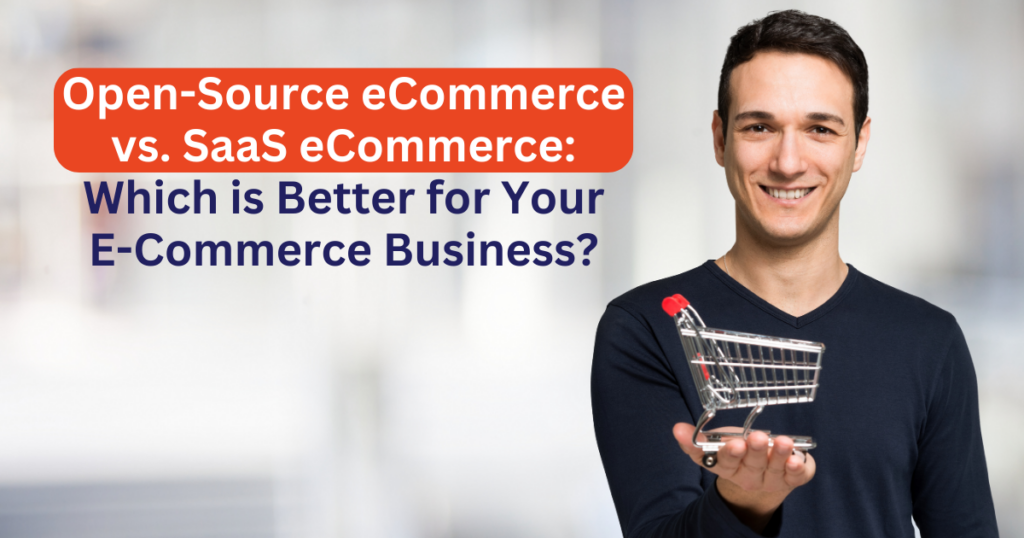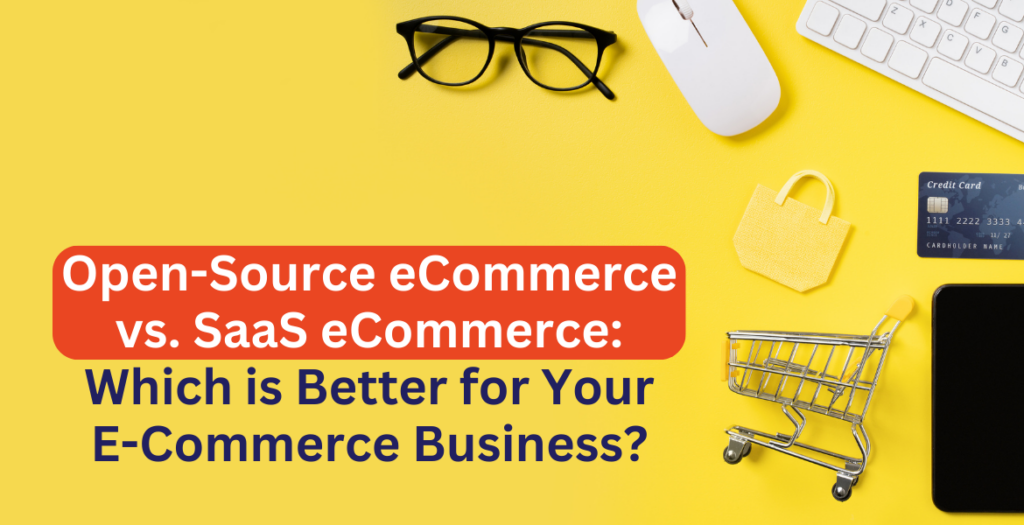
Open-Source eCommerce vs SaaS eCommerce: Which is Better for Your E-Commerce Business?

Choosing the right platform for your e-commerce business is crucial. This blog compares open-source eCommerce vs. SaaS eCommerce platforms, exploring their benefits, customization options, scalability, security, user-friendliness, and more.
Understanding Open-Source eCommerce:
Open-source platforms offer flexibility, customization options, and lower costs. They allow integration with third-party tools and provide control over growth.
Advantages of SaaS eCommerce:
SaaS platforms offer quick setup, enhanced security, reliable support, and scalability. They integrate well with popular applications and have predictable pricing.
Choosing the Right eCommerce Solution:
Consider factors like business size, budget, technical expertise, scalability needs, security requirements, integration possibilities, mobile-friendliness, and user experience.
Pros and Cons of Open-Source eCommerce:
Open-source platforms offer customization and community support but have higher complexity, maintenance, and support limitations.
Benefits of SaaS eCommerce:
SaaS platforms provide user-friendly experiences, easy maintenance, support, scalability, and lower initial costs.
Best eCommerce Platform for Small Businesses:
SaaS platforms often provide the best value proposition for small businesses with limited resources, offering affordability and comprehensive support.
Scalability in Open-Source eCommerce:
Open-source platforms offer greater scalability and control over growth without provider restrictions.
Cost Comparison: Open-Source vs. SaaS eCommerce:
Consider setup, development, maintenance, and hosting expenses. Open-source may require higher upfront investments, while SaaS platforms have ongoing subscription fees.
Customization Options in Open-Source eCommerce:
Open-source platforms offer extensive customization options, allowing tailored online stores according to brand identity and customer requirements.
Security in SaaS eCommerce:
SaaS platforms prioritize security and data protection.
Flexibility in Open-Source eCommerce:
Open-source platforms offer flexibility for adding custom functionalities and integrating with third-party tools.
User-Friendly eCommerce Platforms:
Both open-source and SaaS platforms aim for user-friendly experiences, with SaaS platforms excelling in intuitive interfaces and streamlined setups.
Top Open-Source eCommerce Solutions:
Notable platforms include WooCommerce, Magento, OpenCart, and PrestaShop.
Integration Options in SaaS eCommerce:
SaaS platforms offer integrations with payment gateways, email marketing, CRM, and inventory management tools.
Mobile-Friendly eCommerce Platforms:
Both open-source and SaaS platforms provide responsive designs for optimal mobile experiences.
Open-Source eCommerce Community Support:
Open-source platforms benefit from strong community support, fostering innovation and continuous improvement.
Performance Comparison: Open Source vs. SaaS eCommerce:
Open-source platforms allow fine-tuning, while SaaS platforms offer reliable and high-performance setups.
Open-Source eCommerce Plugins and Extensions:
Open-source platforms provide a variety of plugins and extensions for added functionality and scalability.
Singlebag

Singlebag is an E-Commerce Platform designed to be easily accessible, enabling you to launch your online store within a mere 5 minutes. With its intuitive interface, it offers a range of powerful marketing and sales tools that cater to businesses of all sizes, whether they’re just starting out or already well-established. This makes it a perfect choice for those seeking to expand their reach and sell products worldwide.
Conclusion:
Consider customization needs, scalability, budget, and technical expertise when choosing between open-source and SaaS eCommerce platforms. Open-source suits businesses with specific needs, while SaaS offers convenience and user-friendliness, making it popular for small businesses.






Responses